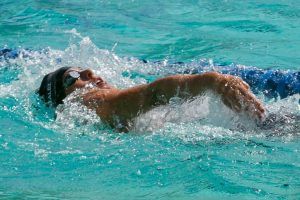
10 Motivational Swimming Quotes to Get You Fired Up
Looking for some awesome swim quotes? Give this list of motivational swimming quotes a look the next time you need to rock and roll in the pool.
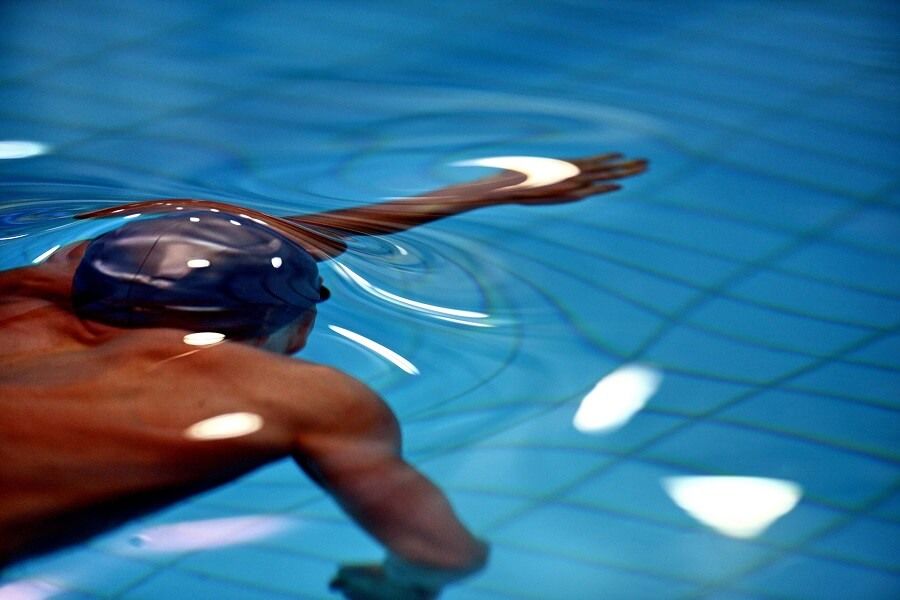
Warm-up and warm-down in practice are usually where good swimming form goes to die a slow, unfocused death. Stand on deck and watch a typical swimmer’s warm-up and you’ll see the worst habits of your local competitive swimmer.
The sloppy hand entries. The lane pulling. The beach-ball streamlines.
If you are slagging through the motions, swimming along with little regard to focus, solely counting down the laps, it’s a safe assumption that this lack of focus and apathy will extend towards the bread and butter sets later in the workout.
Additionally, if the goal of warming up is to, indeed, warm up, then isn’t it worth asking what good comes from performing a bunch of empty-headed meters at a slow pace in cold water?
Instead of mindlessly warming up, do it with focus today.
After all, focused warm-ups:
Here are a few ways to make this happen and get yourself into the habit of warming up with purpose:
What do your goals have to do with warming up?
Swimming fast in practice starts by putting yourself in a place mentally where you are ready to work your butt off and throw down some hilariously fast times.
Each time you step out on deck you should be doing so with purpose.
SEE ALSO: The Swimming Warm-Down: Why It Matters and How Much You Need to Do
With intent.
If you’ve ever gone to your local neighborhood gym you know the unfocused type…
They walk in, meander from machine to machine, and between gazing at their smartphone will do a few sets and reps here and there, never really giving a complete effort until they decide they’ve had enough and briskly walk out, seemingly satisfied with wasting an hour at the gym performing yet another lackluster workout.
In the pool this swimmer hangs out in the corner of the lane, is usually the last to get in, and tends to give uneven, sporadic effort in the water.
If you feel that you aren’t overly focused when you step onto the pool deck, spend a few minutes reviewing your goals.
Why are you at the pool today? What do you want to accomplish with your time in the water?
This focus and intensity shouldn’t just be limited to the main set, but should bleed into the whole practice session.
Not only will you have more consistent, more effective practices from beginning to end, but being on point and having your goals in the back of your mind will help push you through those moments where you are tired, you are sore, and the last thing you want to do is swim another lap.
Think of your mental warm-up as the equivalent of a swimming parka–designed to get you warm and mentally primed for battle in the water.
Get your mind right from the moment you step out on deck, and performing at a high level will become habitual each time you strap on the suit.
A proper warm-up doesn’t just get you a little bit sweaty, it also primes the movements and intensity to come later in the workout.
Warm up with the same technique and rhythm to be used later in the swim workout.
Think of it this way…
If you were in the gym, would you do bench press warm-up reps to prepare for a heavy day of squats?
Of course you wouldn’t. You’d do a bunch of bodyweight squats and progressively load up the weight on the barbell.
Apply this specificity to your warm-ups.
We all have those weak links in our swimming. The thing that we keep telling ourselves to work on, but rarely do.
Instead of waiting until the end of practice to hone this specific thingy, or trying to level up your weak link in the midst of a tough set when you are likely to lapse from mental and physical fatigue, in corporate working on your soft spots in warm-up:
The best part? It doesn’t take any extra time to do this, it’s already meters/yards that you are doing, now you are simply doing them with purpose.
Why during your warm-up?
Because your mind and body are fresh, and working on your weaknesses is always going to be easier at the beginning of your workout then when you are taxed mentally and physically in the midst of a challenging set.
The key to making this work is to do just a little bit each day. (If it’s important to your swimming, you should be doing it everyday.)
You don’t need to upend the way you train overnight—this type of wholesale change rarely sticks. Instead, make the adjustment so small, so inconceivably easy that it’s impossible not to do.
Sure, it might not look like much in the short term, but over the course of the season it will add up in a very powerful manner.
SEE ALSO: Swimming Tips: The 7 Fundamentals of Fast Swimming
Instead of prescribing warm-up at volume, make the reps shorter, with intervals so that the swimmers are focused from the moment they get into the water.
Is it really necessary to do mobility and stretching work on deck, a warm-up, and then a pre-set—covering the span of sometimes 1-1.5 hours before the bread and butter sets have even begun?
Rather than do a blanket 1000m warm-up of mix swim/kick and pull, try doing 4×50 of each descending each to about 85% effort with perfect technique.
(Having shorter, more focused warm-ups will come in particularly handy at swim meets, when you don’t always have 90 minutes to leisurely warm-up.)
By swimming slowly, in cool water, all you really doing is insuring that you are going to be spending the first chunk of the main set getting properly warmed up.
Treat your practice warm ups like you would treat your competition warm-up.
When you go to a meet you won’t have the first few reps of the main set to get acclimatized or warmed up—it’s warm up and then the blocks and that’s it.
A simple rule of thumb: By the end of your warm-up you should feel ready to race.
Perhaps the most critical way of thinking about warm-up is to think of it as the staging area for a killer performance.
Instead of viewing it as garbage yards, or meters simply to be swum through without thought, use your warm-up to mentally prepare for the work ahead.
By the end of warm-up you should have worked yourself up mentally to a point where you are ready to inflict some damage on the main set.
There’s no grand mystery behind swimming well in practice.
Show up, swim with intent, warm up with purpose and put yourself in a position to perform at the best of your levels in that given set of circumstances.
It’s simply having the mental discipline to put these habits in place so that you can not only make the most of the time you are spending in the pool, but better prepare yourself to swim like a boss when it comes time to stand up on the blocks.
The featured image for this post was shot by Neil Hodge, a talented photographer based out of Victoria, BC. You can check out his work by visiting his Facebook page by clicking here.
Subscribe to the YourSwimLog.com newsletter and get tips and advice on how to swim faster every weekday morning, straight to your inbox.
Join 33,000+ swimmers, coaches, and swim parents learning what it takes to swim like a boss.
Unsubscribe anytime. Email will never be shared or sold.

Olivier Poirier-Leroy Olivier Poirier-Leroy is the founder of YourSwimLog.com. He is an author, former national level swimmer, two-time Olympic Trials qualifier, and swim coach.

Looking for some awesome swim quotes? Give this list of motivational swimming quotes a look the next time you need to rock and roll in the pool.
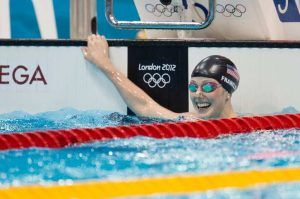
Missy Franklin’s book Relentless Spirit details the triumphs and tribulations on the path to becoming an Olympic champion. Here is a review of the book, along with key takeaways, quotes and highlights…
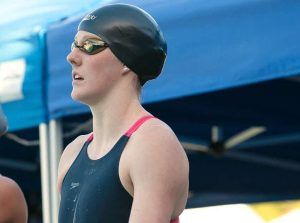
American swim star Missy Franklin captivated the world during her reign as one of the best swimmers on the planet. Here’s how she built her self-confidence going into big swim meets.
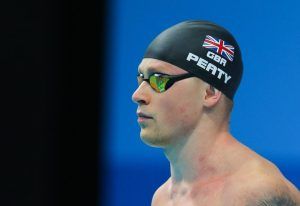
If you want to swim faster and maximize your preparation in the water, make sure you are focused on real solutions and not fake problems.
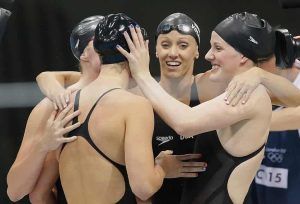
Ever wondered why some swimmers always swim ridiculously fast on relays? Here’s how the kind of motivation you use behind the blocks influences how you perform in the water.
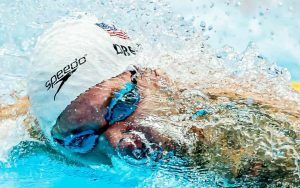
This is the ultimate guide for helping age group swimmers get highly motivated. You are going to learn about some proven techniques and tools that you can start using today to light your motivation on fire. (And keep it burning bright after that first burst of motivation fades away.) If

LANE 6 PUBLISHING © 2012-2024 · PRIVACY POLICY · RETURN POLICY · TERMS OF SERVICE · AFFILIATE DISCLOSURE